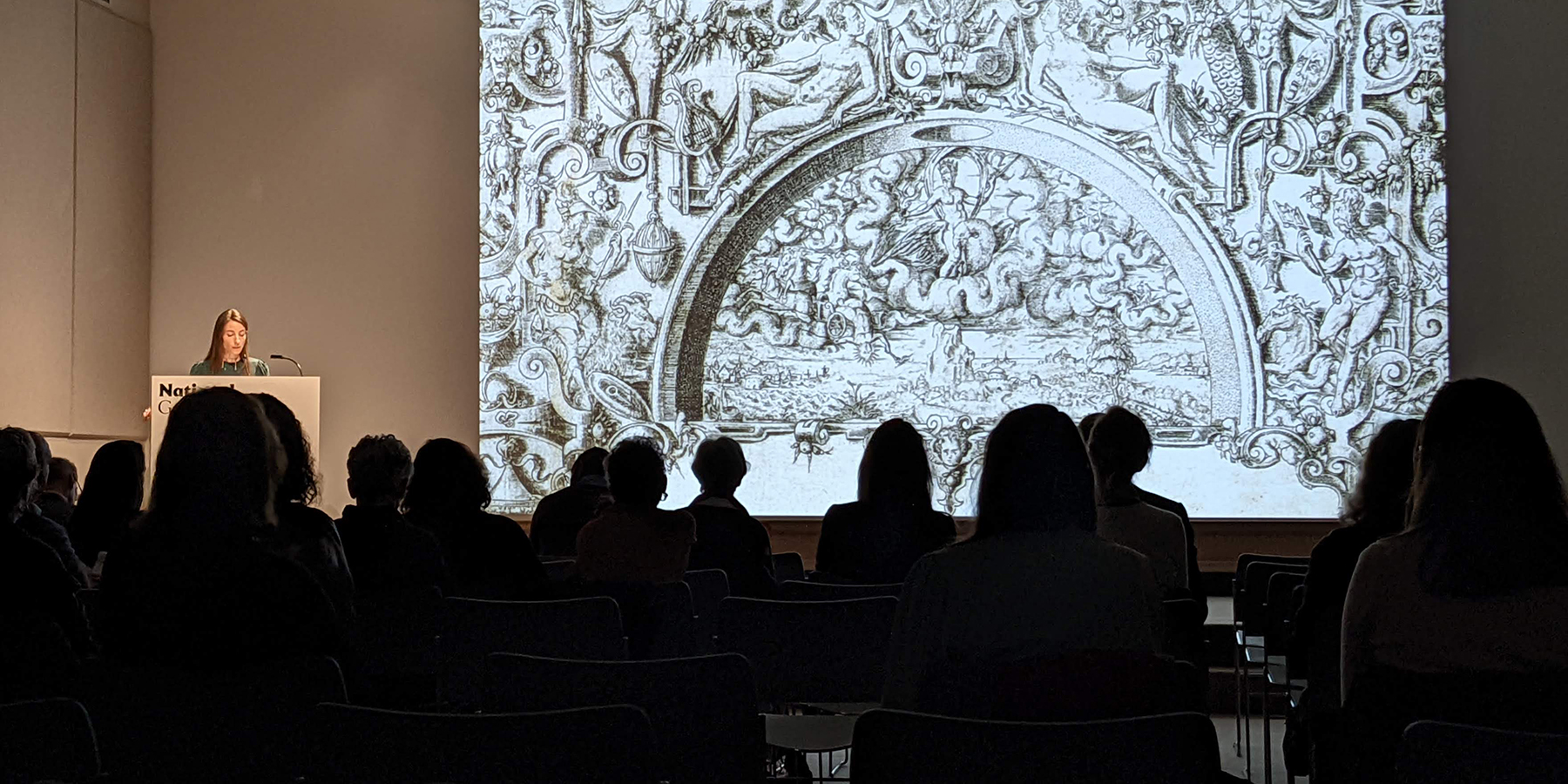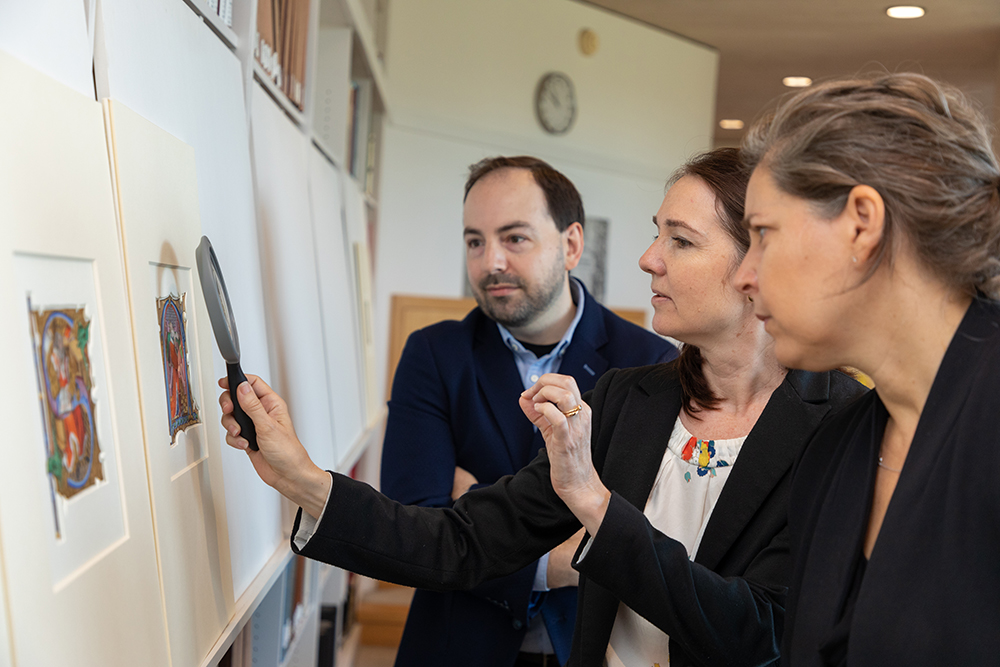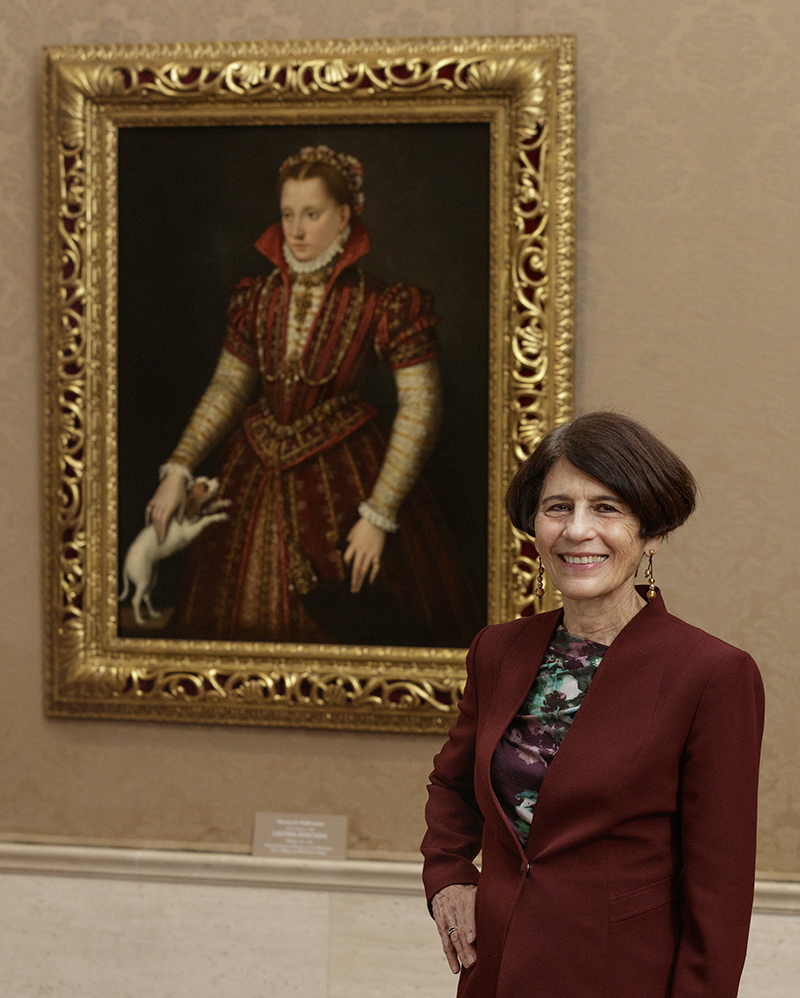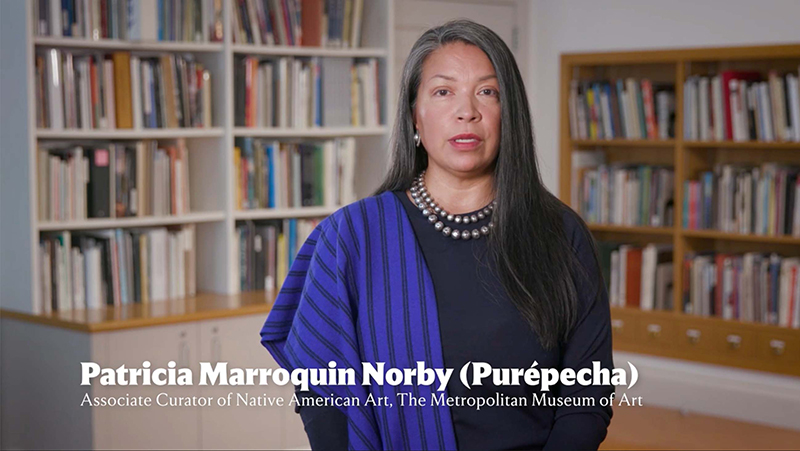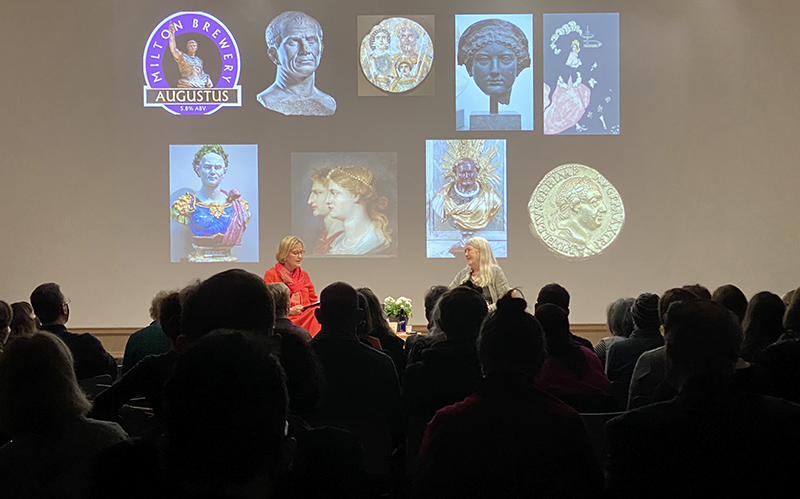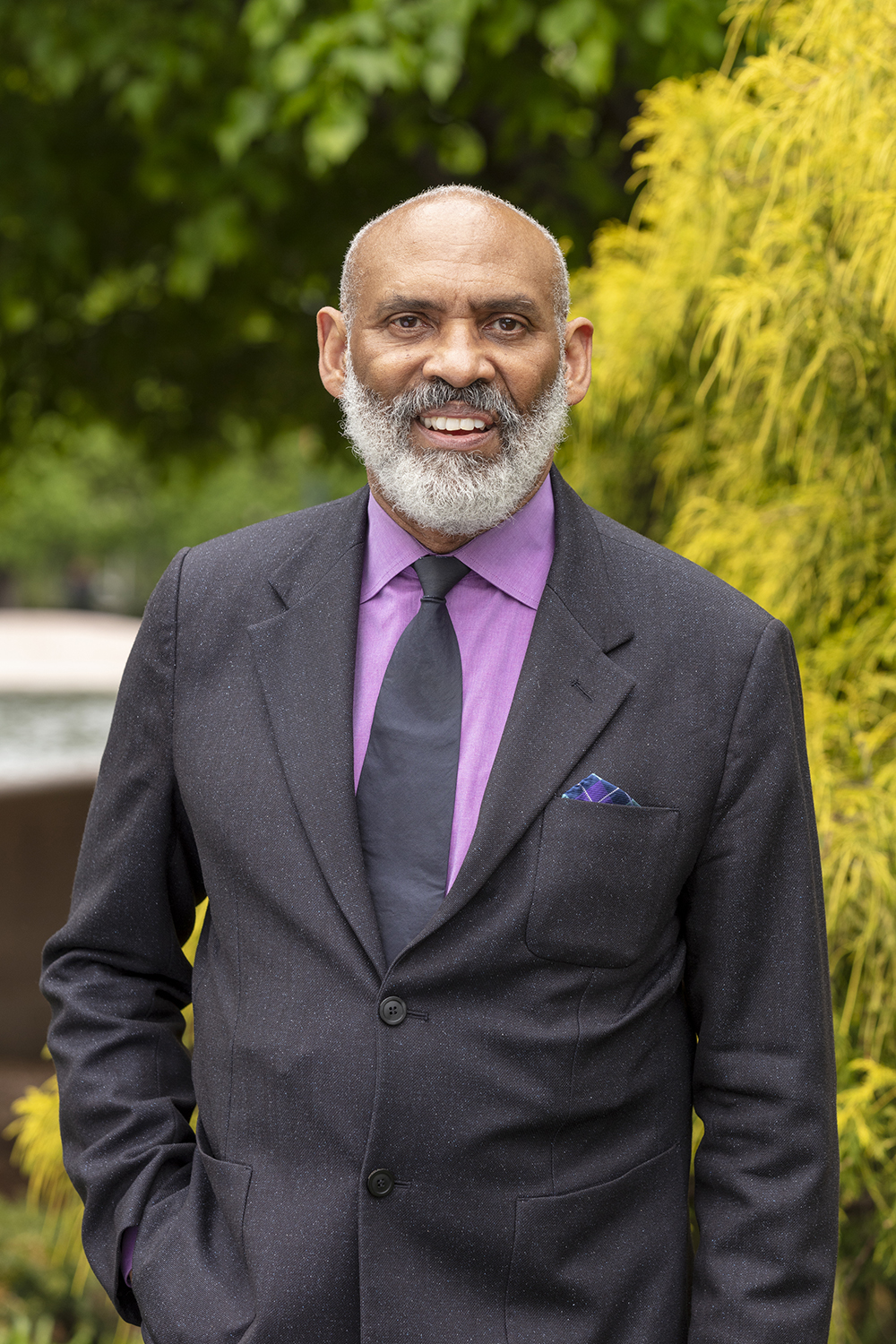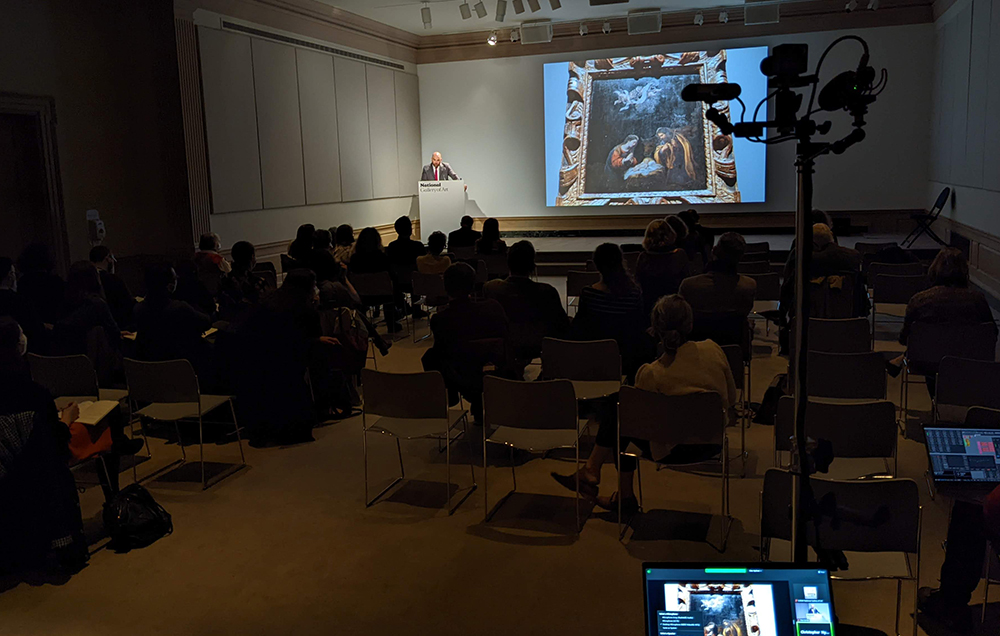Programs By Invitation
A. W. Mellon Predoctoral Seminar
Reading Atmospherically: Black Studies, Critical Theory, and Their Legacies
Organized by Ellen Tani, A. W. Mellon Postdoctoral Fellow, 2020–2022
Virtual program
Each year, a Center postdoctoral fellow designs and directs an intensive weeklong seminar for the predoctoral fellows in residence.
This seminar offered both an introduction to and engagement with texts from Black Studies and explores how its generative legacy—long considered extrinsic to the work of art history (with the exception of African American art)—offers creative reframings for our work as scholars, teachers, and institution builders. Recent texts in Black Studies reconsider fundamental ideas, from physics and atmospheric conditions to coasts and sounds. These models of speculative and provisional inquiry explore furtive and radical pathways through the structuring logics of Western enlightenment and modernist thought. How can we expand the tools at our disposal to resolve some fundamental contradictions of the field, such as its reckoning with its colonial past and the broader Enlightenment project through which it arose? And can we interrogate the foundational grammar of art-historical study at the same time?
Participants
Thadeus Dowad, Paul Mellon Fellow, 2018–2021
Susan Eberhard, Andrew W. Mellon Fellow, 2019–2021
Ziliang Liu, Ittleson Fellow, 2019–2021
Andrew Sears, David E. Finley Fellow, 2018–2021
Kimia Shahi, Wyeth Fellow, 2019–2021
Johanna Sluiter, Twenty-Four-Month Chester Dale Fellow, 2019–2021
Teresa Soley, Samuel H. Kress Fellow, 2019–2021
Sydney J. Freedberg Lecture on Italian Art Incontro
Investigating the Women Artists of Early Modern Italy: Methods, Provocations, and Challenges
Babette Bohn, Texas Christian University
Virtual program
This discussion explored some of the methods and challenges pertinent to the study of early modern women artists in Italy. One example is archival research, which is essential and often fruitful, but can also be frustrating and incomplete given the discriminatory selectivity of the historical record. Investigations of patronage, critical language, social and economic circumstances, criteria for determining authorship, and the pervasiveness of lost works all create challenges for scholars. Can some combination of useful strategies mitigate these issues?
November 19, 2021, and May 19–20, 2022
Art Academies: Europe and the Americas, c. 1600–1900
Organized by Peter M. Lukehart, Associate Dean, and Ulrich Pfisterer (Zentralinstitut für Kunstgeschichte, Munich), with Oscar E. Vázquez (University of Illinois at Urbana-Champaign)
November 19: Virtual program
May 19–20: Munich
These seminars brought together specialists of the academies and schools of art of the 17th through 19th centuries in both Europe and the Americas. In recent decades, art-historical scholarship on artists’ training has focused on the intersectionality, global entanglements, and sociocultural significance and political contexts of the production, distribution, reception, display, and performance of objects, images, and their histories. Yet, research that takes a comparative analysis of the definitions, functions, and differing contexts of institutions of arts training has been almost completely absent.
The Art Academies seminars aimed to make a significant contribution in this direction. Examining academies of art and arts organizations in both Europe and the Americas, the program sought to evaluate the ideological and material differences among and within academies. It did so in order to highlight the specific academic dissonances that counter the chorus of publications that either drown out the individual contributions of local institutions or, contrarily, remain silent about the possibility of other—often outside—models. The differences afford us a more nuanced and complex understanding concerning academies that were in fact adapted and shaped as much by local concerns and needs as by international trends across time and oceans.
Participants
Buket Altinoba, Institut für Kunstgeschichte, Ludwig-Maximilians-Universität München
María Isabel Baldasarre, Ministerio de Cultura de la Nación, Buenos Aires
Émilie Beck Saiello, Centre Norbert Elias, EHESS/CNRS/Avignon Université/Aix-Marseille Université
Pablo Berríos González, Santiago, Chile
David Brigham, Historical Society of Pennsylvania
Carolina Brook, Rome, Italy
Paul Duro, University of Rochester
Ray Hernández-Durán, University of New Mexico
Jongwoo Jeremy Kim, Carnegie Mellon University
Peter M. Lukehart, Center for Advanced Study in the Visual Arts
Esperanza Navarrete Martínez, Real Academia de Bellas Artes de San Fernando, Madrid
César Peña, Universidad de los Andes, Bogotá
Trinidad Pérez Arias, Universidad Andina Simón Bolivar, Quito
Ulrich Pfisterer, Zentralinstitut für Kunstgeschichte, Munich
Christiane Salge, Technische Universität Darmstadt
Vita Segreto, Accademia di Belle Arti di Roma
Ursula Ströbele, Zentralinstitut für Kunstgeschichte, Munich
Oscar E. Vázquez, University of Illinois at Urbana-Champaign
Daryle Williams, University of California, Riverside
Wyeth Lecture in American Art Incontro
Curating Now: Understanding Indigenous Perspectives, Foregrounding Indigenous Voices
Patricia Marroquin Norby, The Metropolitan Museum of Art
Virtual program
Patricia Marroquin Norby (Purépecha) discussed the lives and careers of Tewa artists Tonita Peña (San Ildefonso/Cochiti) and Helen Hardin (Santa Clara). She shared her curatorial practices that affirm Indigenous representations and voices at the Metropolitan Museum of Art and her vision for collecting, presenting, and interpreting Native American art.
A. W. Mellon Lectures in the Fine Arts Incontro
Richard J. Powell, Duke University
71st A. W. Mellon Lecturer in the Fine Arts
Virtual program
A discussion of the 2022 A. W. Mellon Lectures in the Fine Arts, Colorstruck! Painting, Pigment, Affect.
Book Proposal Development Program
Organized by Elise Ferone, Center Support Specialist, and Lauren Taylor, Postdoctoral Research Associate
Virtual program
Held virtually, this program centered on securing a book contract and took the form of weekly seminars and biweekly workshopping sessions. Experienced academics and publishing professionals gave presentations and facilitated discussions concerning the conceptual and practical aspects of creating a book proposal based upon a completed dissertation. Workshopping sessions encouraged participants to generate drafts of their proposal, to share peer-to-peer feedback, and to build support networks. The initiative supported the professional development of early career alumni and also facilitated peer engagement across cohort years.
Moderator
Steven Nelson, Center for Advanced Study in the Visual Arts
Speakers
Huey Copeland, Center for Advanced Study in the Visual Arts
Madhuri Desai, The Pennsylvania State University
Eleanor Goodman, The Pennsylvania State University Press
Byron C. Hamann, The Ohio State University
Ken Wissoker, Duke University Press
Participants
Ravinder S. Binning, Kunsthistorisches Institut in Florenz
Rachel E. Boyd, Ashmolean Museum
Alexander Brey, Wellesley College
Alicia Caticha, Northwestern University
Ashley Dimmig, The Walters Art Museum
Valeria Federici, Center for Advanced Study in the Visual Arts
Michele L. Frederick, North Carolina Museum of Art
Nikki Georgopulos, National Gallery of Art
Ximena A. Gómez, University of Massachusetts Amherst
Eric R. Hupe, Lafayette College
Annika Johnson, Joslyn Art Museum
Samuel Luterbacher, Yale University
James Pilgrim, Johns Hopkins University
Miriam K. Said, Center for Advanced Study in the Visual Arts
Michelle Smiley, Rutgers University
Ellen Tani, Center for Advanced Study in the Visual Arts
Lauren Taylor, Center for Advanced Study in the Visual Arts
Matthew J. Westerby, Center for Advanced Study in the Visual Arts
Fulvia Zaninelli, Center for Advanced Study in the Visual Arts
The Anarchival Impulse
Organized by Aruna D’Souza, Edmond J. Safra Visiting Professor, spring 2022, and Anthony Elms (Philadelphia)
In-person program
Participants
Raven Chacon, Red Hook, NY
Rhea L. Combs, National Portrait Gallery, Smithsonian Institution
Lynne Cooke, National Gallery of Art
Huey Copeland, Center for Advanced Study in the Visual Arts
Marissa Del Toro, New Haven, CT
Molly Donovan, National Gallery of Art
Aruna D’Souza, Center for Advanced Study in the Visual Arts
Anthony Elms, Philadelphia
Kanitra Fletcher, National Gallery of Art
Candice Hopkins, Red Hook, NY
Paul B. Jaskot, Duke University
Peter M. Lukehart, Center for Advanced Study in the Visual Arts
Steven Nelson, Center for Advanced Study in the Visual Arts
Jennifer Stager, Johns Hopkins University
Lowery Stokes Sims, Center for Advanced Study in the Visual Arts
Hilary Whitham Sánchez, Center for Advanced Study in the Visual Arts
Kandis Williams, Studio Kandis Williams/Cassandra Press
Traveling Research Seminar on Afro-Latin American Art Study Day
In conjunction with the exhibition Afro-Atlantic Histories
In-person program
In conjunction with the National Gallery’s curatorial division, the Center hosted Harvard University’s Traveling Research Seminar on Afro-Latin American Art for a daylong visit centering on the exhibition Afro-Atlantic Histories. The study day featured a panel discussion with the National Gallery’s curatorial team.
Participants
Kleber Amancio, Universidade Federal do Recôncavo da Bahia, Cruz das Almas
Nohora Arrieta Fernández, Georgetown University
Vivian Braga dos Santos, Institut national d’histoire de l’art, Paris
Kency Cornejo, University of New Mexico
Molly Donovan, National Gallery of Art
Kanitra Fletcher, National Gallery of Art
Tatiana Flores, Rutgers, The State University of New Jersey
Cary Aileen García Yero, Harvard University
María de Lourdes Ghidoli, Grupo de Estudios Afrolatinoamericanos, Universidad de Buenos Aires
Andrew Hamilton, The Art Institute of Chicago
Eva Lamborghini, Universidad de Buenos Aires
Ada Elena Lescay González, Universidad de Oriente, Santiago de Cuba
Tadeu Mourão dos Santos Lopes, Instituto Federal de São Paulo
Steven Nelson, Center for Advanced Study in the Visual Arts
Elena O’Neill, Universidad Católica del Uruguay, Montevideo
E. Carmen Ramos, National Gallery of Art
Juliana Ribeiro da Silva Bevilacqua, Queen’s University, Kingston
Melanie White, Brown University
